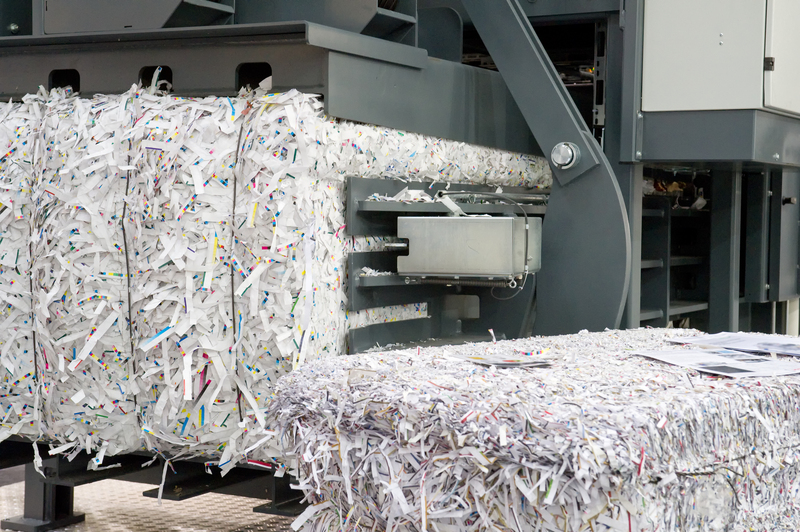Solutions for Unattended Bin Collections
Unattended bin collections can pose significant challenges in urban environments, affecting cleanliness, sanitation, and the general aesthetics of communities. Addressing these issues requires strategic solutions that are practical, sustainable, and technology-driven. This comprehensive guide explores various solutions for unattended bin collections that municipalities and communities can adopt to improve their waste management systems effectively.
The Challenges of Unattended Bin Collections
The issue of unattended bins primarily arises when waste containers are left uncollected due to various factors such as:
- Inadequate scheduling: When collection schedules do not align with the amount of waste generated, bins may overflow.
- Inefficient routing: Poorly planned collection routes can result in bins being missed and waste being left uncollected.
- Insufficient manpower: A shortage of waste management personnel can lead to delays in collection services.
- Seasonal fluctuations: Changes in waste generation rates due to seasonal events can impact the efficiency of collections.

Innovative Approaches to Manage Unattended Bin Collections
Implementing cutting-edge solutions can significantly address the issue of unattended bin collections, ensuring waste management systems operate smoothly and efficiently. Below, we explore a variety of approaches that can be utilized:
1. Smart Waste Management Technologies
Leveraging technology is crucial for modernizing waste management practices. Here are key technological solutions:
- IoT-Enabled Bins: Integrating Internet of Things (IoT) technology into bins allows them to communicate with centralized systems, providing real-time updates on waste levels. This ensures timely collections before bins overflow.
- Automated Routing Systems: These systems optimize collection routes in real-time, adjusting schedules based on bin fill levels and traffic conditions, making collections more efficient.
- Mobile Apps for Residents: Applications that allow residents to report unattended bins directly to waste management services prompt faster responses and immediate action.
2. Community Engagement Initiatives
Community participation is crucial in addressing waste management challenges. Effective strategies include:
- Awareness Campaigns: Educating the public on proper waste disposal and the importance of complying with collection schedules encourages community cooperation.
- Incentive Programs: Incentives for households and businesses that manage waste efficiently motivate adherence to collection practices.
- Collaborative Clean-Up Drives: Regularly organizing community clean-up events fosters a sense of responsibility and helps keep public spaces tidy.
3. Policy Implementation and Revision
Governments and local authorities play a vital role in managing waste collections through policy-making:
- Mandating Regular Audits: Routine assessments of waste management practices ensure compliance with set standards and identify areas that need improvement.
- Flexible Scheduling Policies: Implementing flexible collection schedules that adapt to the fluctuating waste generation patterns improves reliability.
- Investment in Infrastructure: Better infrastructure, including more waste collection vehicles and facilities, supports increased efficiency of services.
4. Sustainable Waste Management Practices
Adopting sustainable methods not only addresses bin collection issues but also benefits the environment:
- Recycling and Sorting Initiatives: Encouraging residents and businesses to separate recyclables reduces the volume of general waste, making collections more manageable.
- Composting Programs: Encourages the diversion of organic waste to composting, relieving pressure on waste collection systems.
- Waste-to-Energy Solutions: Converting waste into energy creates a dual benefit of waste reduction and energy production.

Case Studies and Real-World Implementations
Several regions around the globe have successfully implemented innovative solutions for unattended bin collections:
The Model of Amsterdam
Amsterdam has invested in smart waste management systems, integrating sensors in bins to monitor fill levels. This initiative has led to a 30% reduction in collection costs by optimizing collection routes and schedules. Their success is attributed to collaborative government action and technology adoption.
San Francisco's Community Engagement
San Francisco is renowned for its proactive community engagement initiatives. The city conducts regular public education campaigns and incentivizes recycling, aiming for zero waste. They have introduced apps for reporting unattended collections, enhancing community-government communication.
The Success of Curitiba's Policy Revisions
Curitiba in Brazil has successfully implemented policy changes that promote flexible scheduling and auditing of waste services. Their investment in infrastructure and consistent community involvement has made their waste management system one of the best in Latin America.
Conclusion
Efficiently addressing unattended bin collections requires a multifaceted approach involving technology, community engagement, policy implementation, and sustainable practices. By drawing on successful global examples, communities can tailor their strategies to meet local needs, ultimately improving urban cleanliness and enhancing the quality of life. Embracing these solutions ensures that waste collection systems are reliable, responsive, and environmentally friendly.
By combining innovative technological solutions with robust community participation and efficient policy reforms, unattended bin collection problems can be effectively mitigated, leading to smoother waste management processes that benefit both humans and the environment.